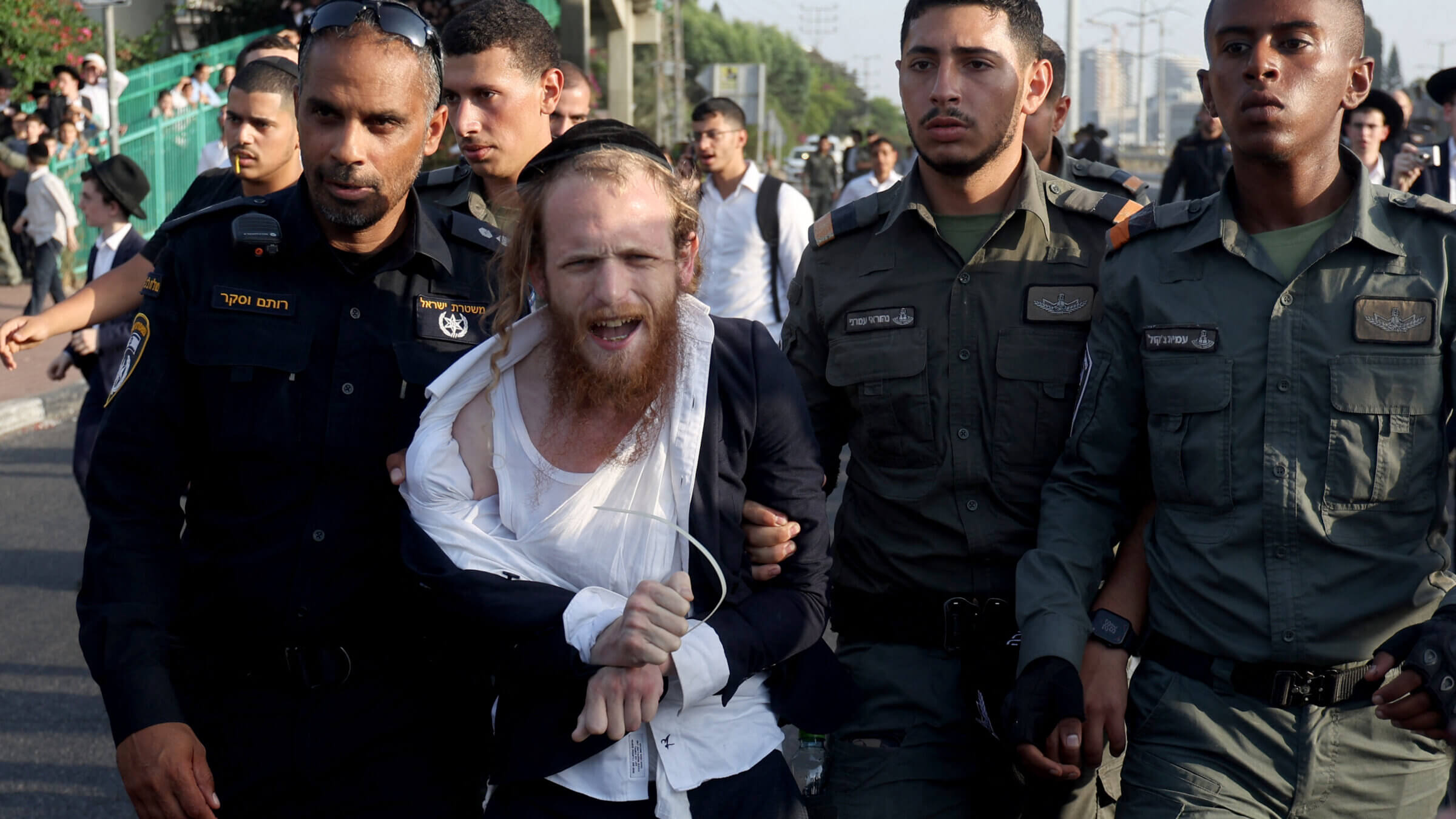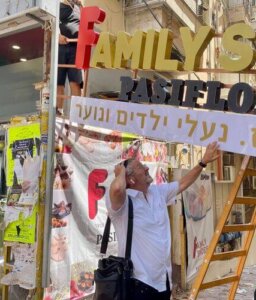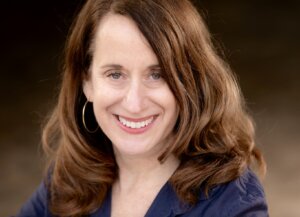Haredim warn of ‘religious war’ after Israel Supreme Court orders yeshiva draft
‘Our people aren’t going to stand for it,’ said one Torah scholar. ‘Just watch.’

An Orthodox man was detained by police in Bnei Brak last week protesting the proposed draft of yeshiva students into the military. Israel’s Supreme Court ordered the draft Tuesday. Photo by Jack Guez/AFP via Getty Images
BNEI BRAK, Israel — Members of Israel’s Haredi community are warning of a religious war after this country’s Supreme Court ruled Tuesday that the government must start drafting yeshiva students into its military.
“If our young men have to stop studying Torah to go fight in the army, this country has nothing,” said Israel Trabelsi, a 70-year-old Torah scholar and furniture salesman here in this largely Haredi community east of Tel Aviv. “Our people aren’t going to stand for it. Just watch.”
Chatting in French Tuesday afternoon from a shady bench in central Bnei Brak, Trabelsi said no ruling by a secular court will interrupt thousands of years of Torah learning. Echoing several other men and women I spoke with after Tuesday’s ruling, he said: “A lot can happen before April.”
That’s the deadline all nine of Israel’s Supreme Court justices set for the government to end its exemption for men who study Torah full-time to serve in the Israel Defense Forces. The loophole dates back to Israel’s founding in 1948.
Tuesday’s ruling deemed illegal a decision by the government in June 2023 to put off drafting eligible yeshiva students. It ordered the IDF to end government subsidies for those students and start actively working to recruit them into military service.

Joseph Chaim, a 65-year-old sign maker, said he worries about the spiritual safety of the country, argung that Israel’s safety is as dependent on Torah scholars as on soldiers.
“God will protect us only if we are learning his word,” he told me. “The justice system needs to take that factor into account.”
Speaking as he oversaw the installation of a sign for a shoe store here on Rabbi Akiva Street, Chaim said ending the subsidies for yeshivas will “disrupt life and families in our community.”
“They should be taking money away from Arabs” in Israel, he added. “Not from Jews.”
He, like Trabelsi, expects protests over Tuesday’s court ruling, “and possibly violence after that.”
“Jews fight for what we believe. We have fought wars — we are fighting a war — over much less,” he said.
A contrary view came from Sinai Elmakias, 50, an Orthodox Jewish construction worker and father of 12 from nearby Ramat Gan. He said he served in the army years ago and showed me the scar under his yarmulke to prove it.
“An Arab threw a stone at me, see,” he said. “The way I see it, I served ain the army, so others should go, too.”
A message from our Publisher & CEO Rachel Fishman Feddersen

I hope you appreciated this article. Before you go, I’d like to ask you to please support the Forward’s award-winning, nonprofit journalism so that we can be prepared for whatever news 2025 brings.
At a time when other newsrooms are closing or cutting back, the Forward has removed its paywall and invested additional resources to report on the ground from Israel and around the U.S. on the impact of the war, rising antisemitism and polarized discourse.
Readers like you make it all possible. Support our work by becoming a Forward Member and connect with our journalism and your community.
— Rachel Fishman Feddersen, Publisher and CEO


























